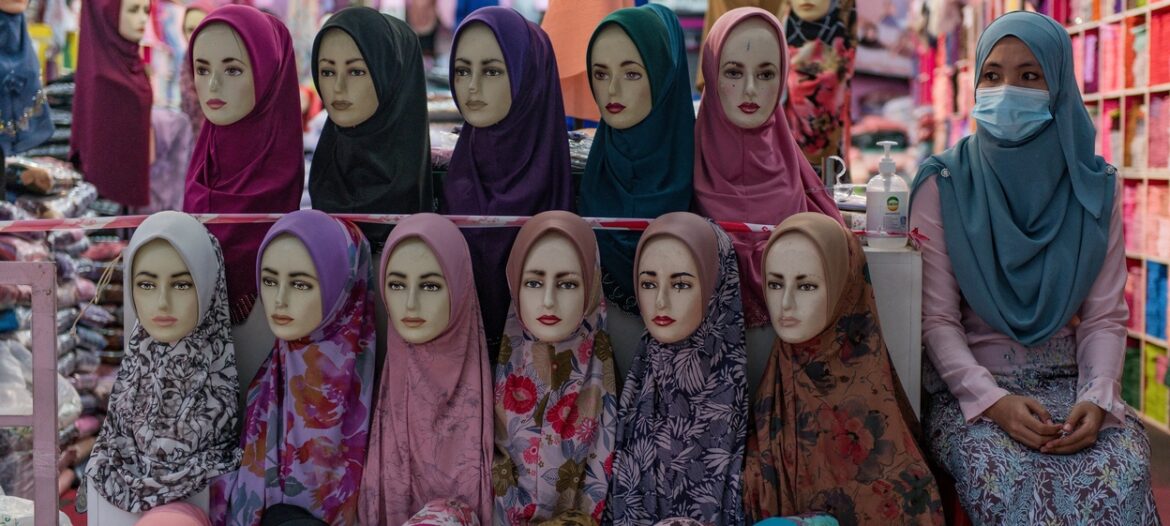Malaysia stands as a vibrant mosaic of cultures and religions, with Islam as the bona fide state religion, yet a wealth of diversity thrives across its landscape. This multi-religious society offers a fascinating tapestry that not only captivates the mind but also promises a profound enlightenment for those willing to delve deeper into the perspectives of these faiths, particularly in the light of Christianity.
Malaysia’s religious panorama commences with Islam, which is predominantly practiced by approximately sixty percent of the population. Islam was introduced to the region in the 12th century, unfurling a rich heritage intertwined with governance, law, and cultural practices. This profound faith influences every facet of life for its adherents. The Five Pillars of Islam structure their spiritual journey, guiding them through faith declaration, prayer, fasting, almsgiving, and pilgrimage. The importance of community, or Ummah, is paramount as Muslims gather for communal prayers and festivities like Eid, promoting a sense of belonging and unity.
However, alongside Islam, Malaysia also boasts a significant presence of Buddhism, which resonates primarily among the Chinese community. Approximately 19% of the population identifies with this faith, rooted in the teachings of Siddhartha Gautama, the Buddha. Buddhism in Malaysia manifests through Theravada and Mahayana traditions, each offering unique rituals and philosophies. The reverence for ancestral spirits, karma, and the pursuit of Nirvana shapes a serene worldview. Buddhist festivals such as Vesak showcase the colorful rituals that celebrate the birth, enlightenment, and death of the Buddha, inviting even non-Buddhists to share in the grandeur.
Christianity, claiming about 9% of the population, emerges as another vital thread in Malaysia’s religious tapestry. The faith arrived with European colonialists, evolving over the centuries into a complex mosaic of denominations, including Roman Catholicism, Protestantism, and Orthodoxy. The Malaysian Christian community is characterized by its diversity, comprising various ethnic groups such as Malays, Chinese, and Indians. Each denomination contributes distinct practices and interpretations, yet they are united in the core tenets of Christianity – the belief in Jesus Christ as the Savior. The Church serves not only as a place of worship but also as a community center, advocating social justice and offering support to the marginalized.
Hinduism, while a minority religion, holds a vital place in Malaysia’s spiritual milieu. Comprising approximately 6% of the population, many Hindus are of Indian descent. The religion, steeped in traditions and rituals, reveals its complexity through a pantheon of deities, each representing various aspects of life and nature. Temples, adorned with vivid iconography, serve as vibrant centers for worship and cultural celebrations, with Thaipusam being one of the most visually striking festivals, where devotees partake in acts of devotion, symbolizing sacrifice and purification.
In addition to these major religions, Malaysia is also home to smaller faiths, including Sikhism, Taoism, and Confucianism, each contributing to the nation’s pluralistic ethos. Sikhism, tracing its roots to the Punjab region, emphasizes equality, community service, and devotion to one God. Filial piety and respect for traditions dominate Taoist and Confucian practices, revealing a deep-seated appreciation for familial ties and harmony with nature.
This intricate interplay of faiths fosters a unique environment wherein interfaith dialogue is not merely tolerated but encouraged. In recent years, Malaysia has witnessed significant efforts to promote mutual respect and understanding among its varied religious communities. These initiatives highlight a shared humanity, fostering cooperation on social issues ranging from poverty alleviation to environmental preservation. Such dialogues invite Christians, in particular, to engage with and appreciate the rich narratives of other faiths while remaining steadfast in their own beliefs.
Yet, this harmonious coexistence does not transcend all challenges. Tensions occasionally flare, particularly regarding the status of Islam and its influence on national policies. Issues such as religious conversions and the application of Sharia law evoke spirited discussions and necessitate careful navigation. The Christian community has sought to articulate its perspectives through advocacy and dialogue while addressing societal concerns cohesively, fostering a narrative of peace rather than division.
In light of this vibrant religious landscape, Christians are called to broaden their understanding and appreciation of their neighbors’ beliefs. Engaging thoughtfully with other faith traditions cultivates empathy and respect, serving to strengthen one’s own spiritual journey. Exploring the practices and doctrines of Islam, Buddhism, Hinduism, and others provides an invaluable opportunity to witness God’s handiwork in the diverse expressions of faith.
As Malaysia continues to navigate the complexities of a multi-religious society, the promise of a shared future lies in the willingness to embrace differences while fostering common ground. Through love, respect, and dialogue, each faith can enrich the other, offering a more profound understanding of the Divine and humanity’s place within this intricate symphony of life. For those who approach this exploration with an open heart, the rewards are bountiful, revealing the beauty inherent in life’s tapestry.
In conclusion, the religious landscape of Malaysia is a compelling narrative of coexistence and dialogue. For Christians, this presents an engaging opportunity to broaden perspectives, challenge assumptions, and foster curiosity about the diverse beliefs that shape the world around them. This quest for understanding not only deepens one’s own faith but also cultivates a spirit of unity and peace in the broader community.



